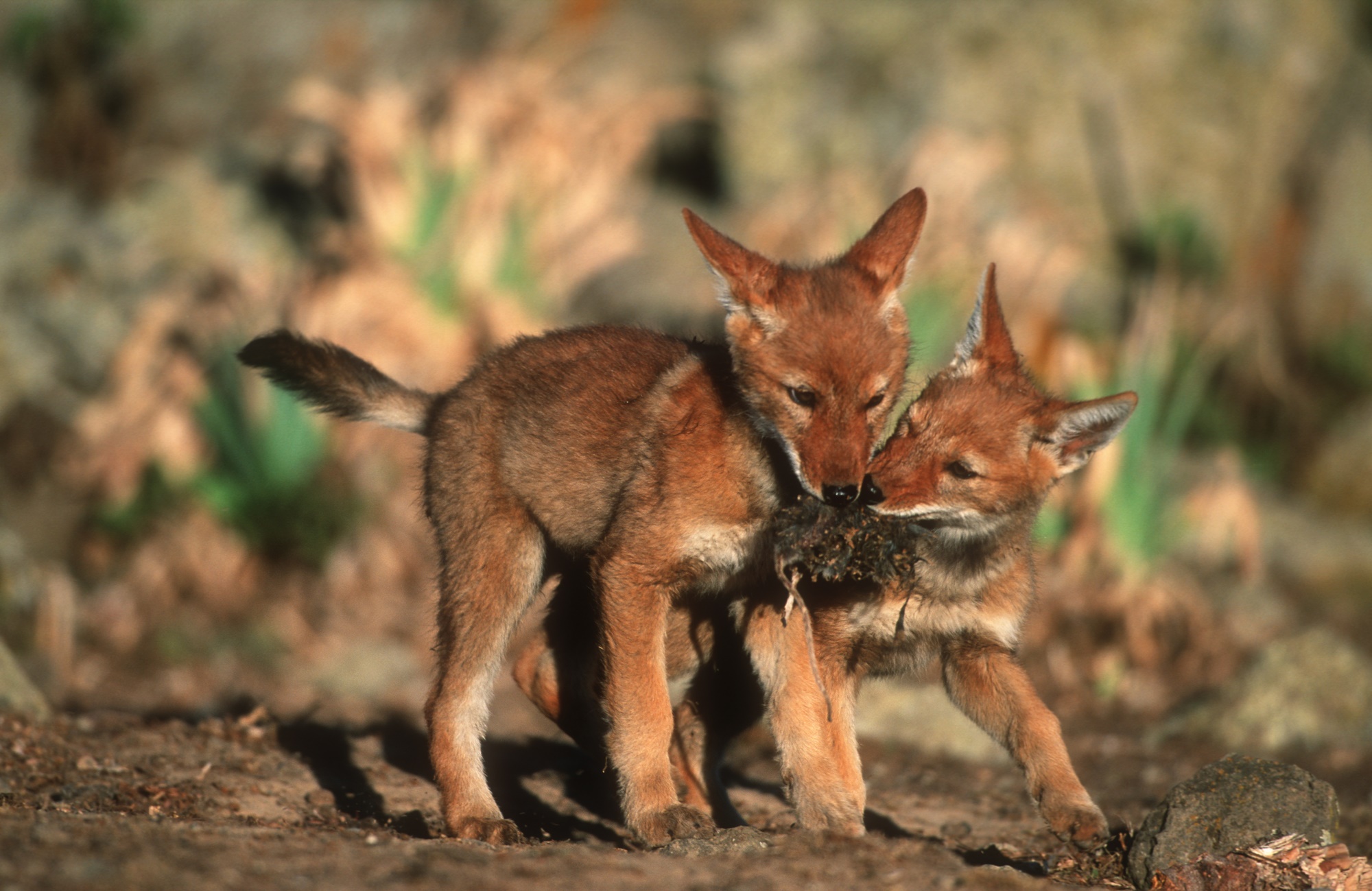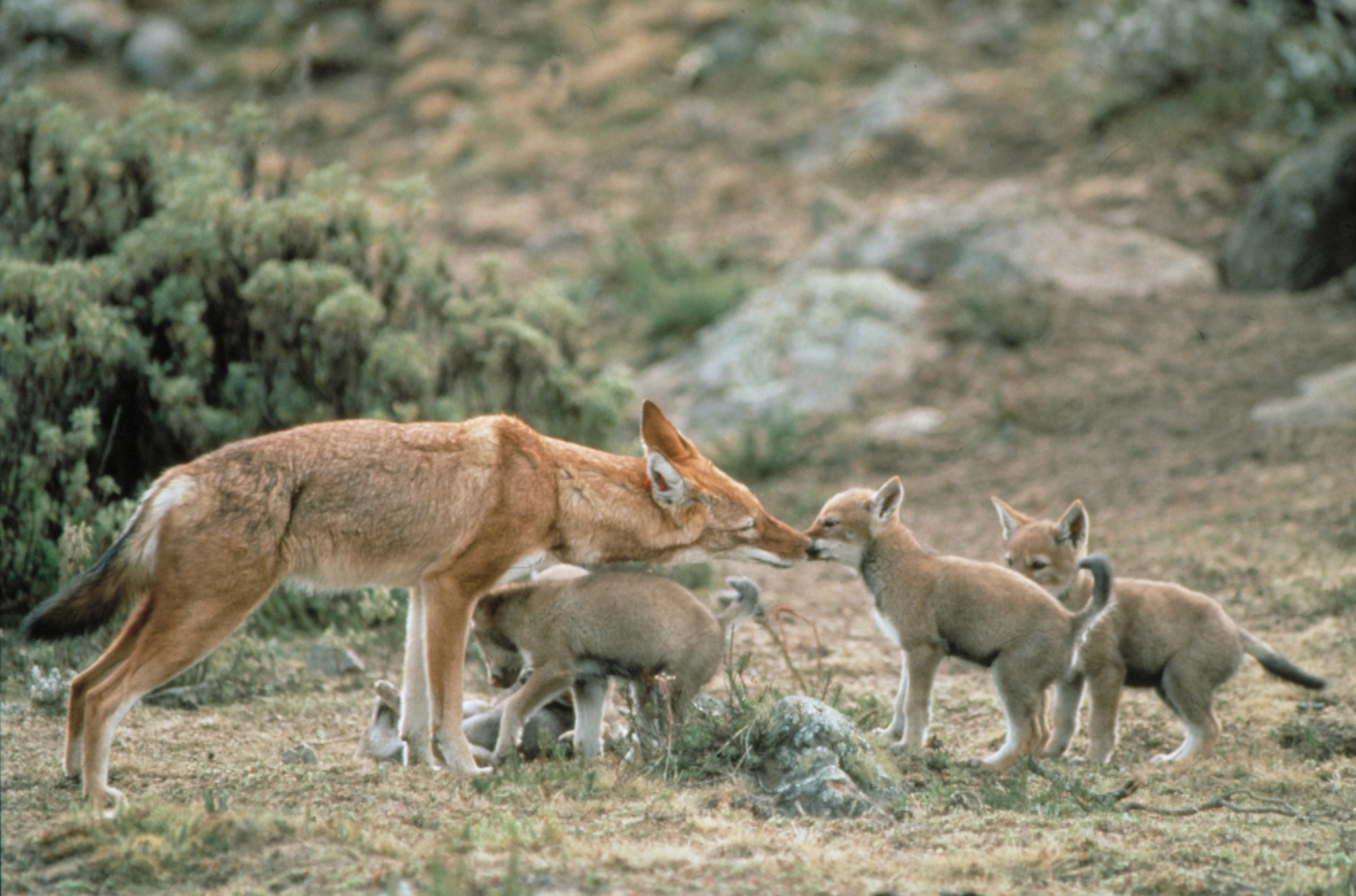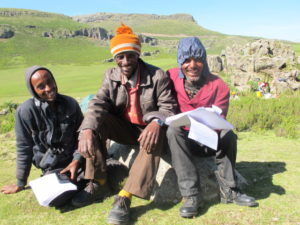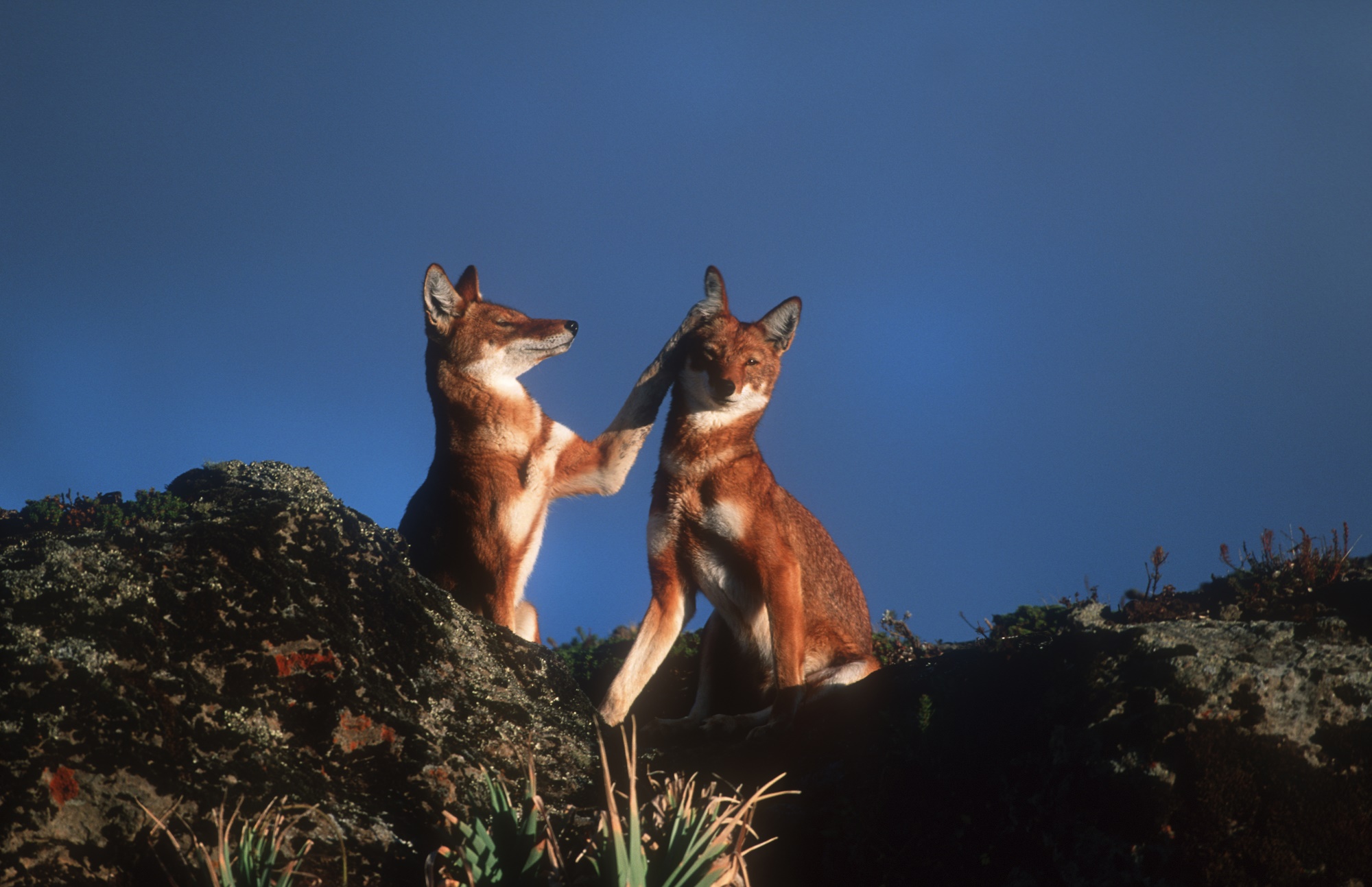Ethiopian wolves

Status
Endangered
Population
Less than 500
Scientific name
Canis simensis
Funding for this project has now finished
Protecting Africa’s most threatened carnivore and world’s rarest canid (dog, wolf and fox family).
The problem
The Bale Mountains of southern Ethiopia are home to 300 of the estimated 500 Ethiopian wolves left. The mountainous terrain that the wolves depend on for survival is surrounded by agricultural land that provides the local people with the food they need to survive and is also used to graze livestock. The endangered wolves are threatened by habitat destruction and degradation, conflict with farmers and also by catching fatal diseases such as rabies and canine distemper virus (CDV) from the domestic dog populations. The latter can kill many of the wolves in a short space of time.
The solution
The Ethiopian Wolf Conservation Programme (EWCP) in partnership with the Wildlife Conservation Research Unit at the University of Oxford will work with the local communities in the Bale mountains of Ethiopia to:
- Increase awareness of local environmental problems, involving communities in formal assessments of natural resources and more sustainable uses
- Demonstrate the importance of biodiversity conservation by conducting site-specific research linking environmental degradation with rodent diversity, wolf behaviour and survival
- Establish a permanent monitoring system for emergent threats and wolf mortality.
 The latter will be implemented throughout the Wolf Ambassadors initiative and the creation of local networks as part of Threat Report Systems. New and extended conservation areas are providing opportunities for collaborations with park scouts and community guards, and natural experiments for ecological research such as grasslands with livestock excluded.
The latter will be implemented throughout the Wolf Ambassadors initiative and the creation of local networks as part of Threat Report Systems. New and extended conservation areas are providing opportunities for collaborations with park scouts and community guards, and natural experiments for ecological research such as grasslands with livestock excluded.
Latest update

Meet the team and see how your donations are helping to save wolves by watching the videos below:
- Gebeyehu works for EWCP and studies a small population of Ethiopian wolves in Delanta, South Wollo. After following them intensively he describes how wolves share the habitat with people and livestock. Watch video
- EWCP Fekadu tells us about his work with local communities. He is passionate about the wolves and finding ways for wolves and people to coexist. Watch video
Thank you to all our donors who helped us fund this work. You can help us support more projects like this with a donation today:

